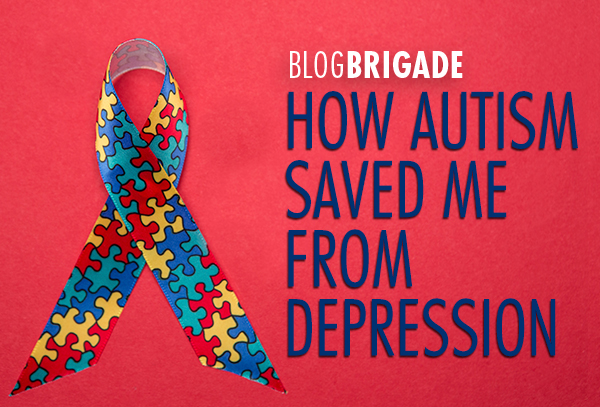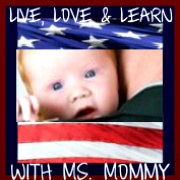
 Blogger Biography: Carmen is a military spouse and mom to a beautiful princess and an awesome, brilliant boy with autism spectrum. She is 26 years old and fairly new to the world of autism, but she says, “I could not have it any other way.”
Blogger Biography: Carmen is a military spouse and mom to a beautiful princess and an awesome, brilliant boy with autism spectrum. She is 26 years old and fairly new to the world of autism, but she says, “I could not have it any other way.”
I know the title sounds a little odd, but it’s true. When I got pregnant with my boy, I was going through a rough change in my life. I was 20 years old and for the first time in my life, I was out of my island, way far of my family as well. We were given the opportunity to be stationed in England, but even though it is a beautiful place, I did not do well with the change or being away from my family. The funny thing is that right after I said I wanted to go to school, work and dedicate my time to building a future and having fun traveling, I got a call telling me I was pregnant! YAY! I could not believe it because we had been trying for a year with no luck! So my son was and is a miracle for us.
Like most of the brand new special needs parents, you can identify with the feeling of failure when you think that everything that is going on with your child is your fault, or that at some point you did something wrong. We all expect to have perfect children, and when they are born we are faced with the truth of not even knowing what perfect is. We all love our children just how they are, and my son is the most perfect creation I have ever seen.
Right after his first birthday, I started to notice changes in his development, and right then I knew something was wrong. Two years later, I got the news I always feared. Deep inside of me, I knew, but I could not accept it. I hoped to hear there was nothing wrong with him, that I just needed help with my parenting. But autism was already there, waiting for me. I did not hear anything else after the word “autism” from the doctor. My whole body shut down, and I could not stop crying.
I blamed myself for everything. I blamed my depression, my incapacity to let go of my family and live the moment! I felt sorry for my son; I felt his whole life was done, that there was nothing to do for him, that I ruined his life. My life was all about blaming myself, and trying to find the “why” of autism. I never felt so bad in my life.
I watched him isolated, sad, lonely in his own world, and it was then when I realized that my son needed me more than ever. It was then when I told my depression to get out of my life. He is my precious, perfect child, and it was time for me to put on the big boots and kick depression out of my door. I am my son’s advocate; I am my son’s bodyguard and protector. There is no one who can tell me that it is impossible. Everything can be done with love and dedication. I will never let anyone tell me otherwise. I am proud that by the age of three, my son was potty trained; he socializes, is bilingual and knows how to play on a computer, tablet…you name it! He has accomplished so many things that those so-called “professionals” told me were going to be impossible.
I am who I am because of my child — because he pulls the best out of me. Whenever I am feeling down, he is always there asking me, “Are you OK?” And I could not feel better after a sweet kiss on my cheek. Autism saved me from my depression. Autism does not give me a break to think about sadness. Yes, it is a lot of work, but it is rewarding. Once your child has autism, everyone has autism.
Autism…is my blessing.
This is just the beginning of our journey. We have many things to do, to discover, to conquer, and I cannot wait to share it with the world. Have you noticed that this new adventure we call autism has kept your values from crashing into this new youth growing up? I love the spectrum community. They are the most understanding people I have ever met. You feel right at home and welcomed; you don’t feel judged; you feel compassion, not rejection.
I could not have it any other way.




 I was an active duty Marine for four years and never stepped in the installation family center. This was in the late 1980s and, to be honest, I didn’t even know the base had a family center. I knew about voluntary education because I was taking college courses. And I knew about the child development centers because the child care providers were always outside walking the toddlers in their multi-seated strollers – they were so cute!
I was an active duty Marine for four years and never stepped in the installation family center. This was in the late 1980s and, to be honest, I didn’t even know the base had a family center. I knew about voluntary education because I was taking college courses. And I knew about the child development centers because the child care providers were always outside walking the toddlers in their multi-seated strollers – they were so cute!